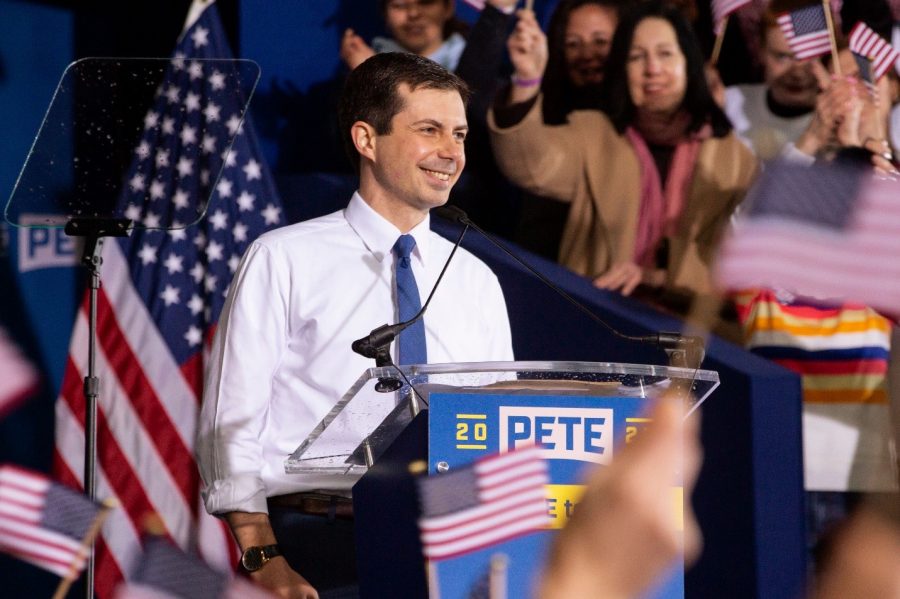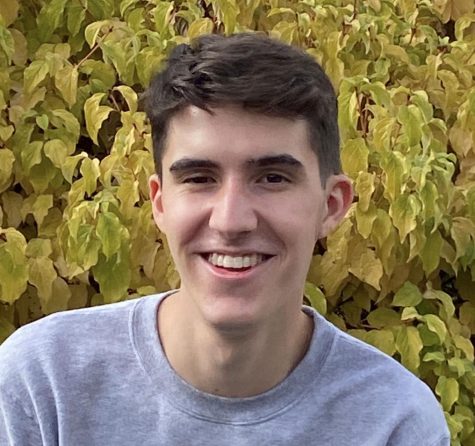What Pete Buttigieg’s Candidacy Means to Me
March 10, 2020
Presidential hopeful and former mayor of South Bend, Indiana, Pete Buttigieg, dropped out of the democratic primaries on March 1. The young politician was able to build his campaign from the ground up, going from an unknown Midwest mayor to a top-tier candidate, often occupying the moderate lane in the crowded democratic field. While Buttigieg’s rapid climb to success was a notable feat in and of itself, there was something that made him particularly unique: he was openly gay.
Pete Buttigieg did not come out until he reached his thirties. Along the campaign trail, he offered glimpses into his personal coming out story, detailing his realization of his sexuality in high school, efforts to cover it up in order to retain jobs in the military and public office, and the eventual publishing of an open letter in his local newspaper that revealed his long-kept secret to his socially conservative city. To many, it was a risky move. He was up for re-election as mayor, his state was governed by the openly-homophobic Mike Pence, and same-sex marriage was still not legal nationwide. Buttigieg, however, thought his public revelation was absolutely necessary, citing how his decision to come out could help LGBTQ+ people in South Bend, or possibly open the hearts of those who once dismissed the validity of other sexual orientations.
For myself, a gay teenager hoping to enter the political field, Buttigieg’s entrance into the presidential race as an openly gay, married man, was nothing short of profound. My coming out story was vastly different from the mayor’s. The revelation happened earlier, and growing up in a socially progressive generation, I felt comfortable sharing it with my close friends at a fairly young age. To this day, however, I still experience immense shame and fear regarding my sexuality. I have yet to come out to my family, and it is true that I feel much more comfortable expressing my feelings as a gay person outside of the house, in the classroom at school, and even in this article. Even then, homophobia is widely present in my day-to-day life. School hallways are still littered with anti-gay slurs and sports teams I am a part of are particularly hostile to members of the LGBTQ+ community. For a majority of my life, and still partially to this day, I question whether or not there is a place for me to exist openly, not only as gay, but as someone with varied, complex interests, that spanned far beyond who I am attracted to.
The way we view sexuality leaves room for progress. If it is not viewed as a hindrance to one’s personal ambitions, it is viewed as one’s definitive character trait. Buttigieg rejected both of these harmful notions. He showed that it was possible to become a successful politician and be openly gay at the same time, often taking first place in the polls and winning the Iowa caucuses. Separately, while Buttigieg never denied the historical precedent set by his campaign, he refused to be defined by his sexuality, offering up his youth, military experience, and success as a mayor as credentials for the presidency. These factors are what make him such an inspirational figure to young members of the LGBTQ+ community, specifically ones like myself who hope to enter a similar career field.
This is not to say that Pete Buttigieg is emblematic of the queer experience. As a white, straight-passing male, even he benefited from a relative amount of privilege. Nevertheless, he represents a massive step forward in society’s treatment of LGBTQ+ individuals. Seeing Buttigieg on that national debate stage or holding rallies with thousands of attendees as an openly gay man, speaking on his experiences as a member of the LGBTQ+ community and expressing affection with his husband creates a profound, lasting impact. Before his entrance to the race, I didn’t really see a place for myself in the political field. Pete Buttigieg was the first person who I could look up to in relation to my future aspirations, while also relate to on a personal level. Thanks to him, I can envision a brighter future, one where I feel comfortable expressing my identity while feeling undaunted in my ambitions, one where I can love who I love openly yet not be defined by my sexuality. Even as he exits the race, the sense of hope he gave me will never be forgotten.



